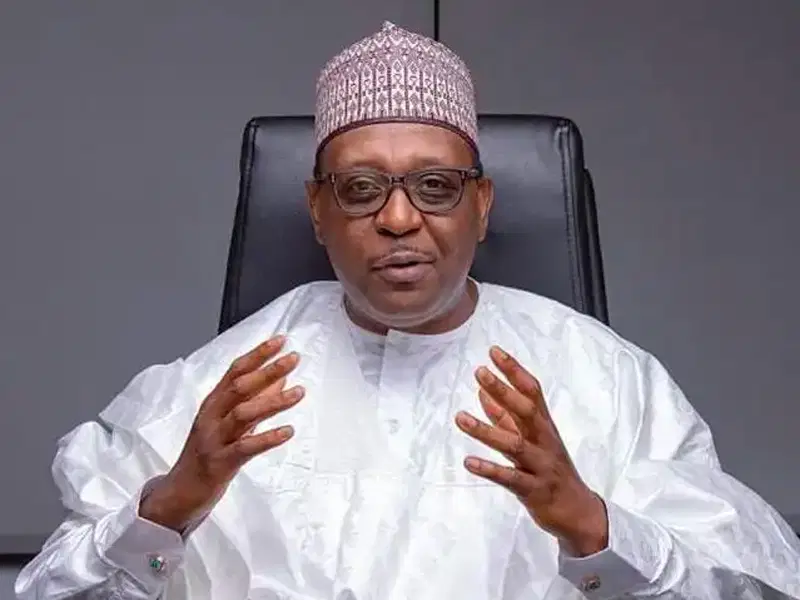
The Coordinating Minister of Health and Social Welfare, Prof. Muhammad Ali Pate, has said that President Bola Ahmed Tinubu’s visionary leadership is driving one of the most transformative eras in Nigeria’s health sector, with measurable progress being recorded across states and local government areas.
Speaking on Wednesday at the Nigeria Health Sector-Wide Joint Annual Review 2025 held in Abuja, Pate commended President Tinubu for laying out a clear and courageous vision for national renewal and for assembling a competent team dedicated to its realization.
“Years from now, when the story of this period is written, the leadership of President Bola Ahmed Tinubu will stand as one of its most glorious chapters,” the minister said.
“He has provided incredible vision, and his lieutenants have demonstrated discipline and focus in steering the country through challenging times.”
Pate also expressed gratitude to traditional rulers, development partners, state health commissioners, and civil society organizations for their collaboration in strengthening Nigeria’s health system.
‘All Hands, One Mission’
The minister said the 2025 review, themed “All Hands, One Mission — Bringing Nigeria’s Health Sector to Light,” underscores the shared responsibility of all stakeholders to improve health outcomes through collective action.
“In a mixed health system such as ours, government alone cannot meet every health need. Achieving our goals demands a whole-of-society approach that draws on the strengths of the private sector, partners, civil society, traditional and religious institutions, and the active participation of citizens,” he stated.
According to Pate, “bringing the health sector to light” means embracing transparency, accountability, and data-driven performance tracking.
Key Progress Indicators
The minister disclosed that the 2025 review builds on last year’s baseline and expands the Health Sector Renewal Compact to include local governments, private sector stakeholders, traditional leaders, and civil society organizations.
He revealed that 84 percent of key performance indicators under the Presidential Bond had been achieved by the third quarter of 2025.
Other achievements highlighted include.
35 states and the FCT have completed their annual performance reviews with citizen participation.
All states now have operational plans aligned with the National Health Sector Strategic Blueprint.
72 percent of states have established systems for managing non-communicable diseases such as hypertension and diabetes.
All 774 local government areas now have National Health Fellows and Public Financial Management Officers — surpassing set targets.
60 percent of National Council on Health resolutions have been implemented.
“These results show that the Compact is not just a document — it is being translated into measurable action at all levels,” Pate said, adding that Nigeria is transitioning “from fragmented donor-led programming to coherent, nationally owned systems.”
Improvements in Health Outcomes
The minister reported significant improvements in reproductive, maternal, newborn, and child health indicators.
According to him:
Deliveries attended by skilled birth attendants now exceed 90 percent.
Antenatal care coverage has remained above 50 percent for two consecutive years.
Family planning acceptance has increased by 10 percent between the first and third quarters of 2025.
Vaccination coverage continues to rise, supported by Gavi and other partners.
Primary health care visits grew from 10 million in Q1 2024 to 45 million in Q2 2025, signaling growing public confidence.
He further disclosed that maternal deaths have declined by 17 percent and newborn deaths by 12 percent across 172 high-burden LGAs targeted under the Miyami Model.
Over 15,000 community health workers have been recruited, 435 health facilities revitalized, and nearly 70,000 frontline workers retrained, bringing the country closer to its 2027 target of 120,000 trained personnel.
“In the priority LGAs, 4,000 free caesarean sections have been conducted in NHIA-accredited facilities,” Pate said, noting that emergency obstetric care has now been integrated into the national health insurance scheme to reduce maternal mortality.
Rising Public Confidence
Presenting findings from citizen perception surveys, Pate reported growing public confidence in Nigeria’s health system:
55 percent of Nigerians now express confidence in the overall direction of the health sector.
67 percent believe the government can effectively manage health emergencies.
74 percent report satisfaction with primary healthcare services.
However, he acknowledged that affordability remains a challenge. He said new initiatives, such as the Medical Relief Programme and expanded social health protection, supported by the Ministers of Finance and Budget, are being developed to reduce cost barriers.
Pate noted that health insurance coverage has doubled — rising from 6–7 percent to 12 percent — driven by the enforcement of mandatory insurance and the operationalization of the Vulnerable Groups Fund.
Sustaining the Momentum
The minister commended the National Assembly for its continued support and urged greater domestic resource mobilization, local manufacturing of medicines and vaccines, and innovative financing mechanisms, including fiscal measures on sugar-sweetened beverages and digital transparency systems.
He called on state and local governments to scale up investments in health, education, water, sanitation, and nutrition, in line with President Tinubu’s ward-based development strategy, describing it as “the most practical path to community upliftment.”
Pate also revealed that over 20,000 frontline health workers had been recruited into tertiary hospitals in the past year, while ₦50 billion had been approved to settle arrears and allowances across health cadres.
“We are engaging responsibly with professional bodies to resolve lingering issues. Our message is simple: put the Nigerian person at the centre. If we do that, every other issue can be resolved,” he said.
‘Transformation in Motion’
Prof. Pate thanked state commissioners, local government leaders, legislators, civil society organizations, and development partners for their commitment to improving health outcomes.
“Together, we are proving that Nigeria’s health transformation is not an aspiration — it is already in motion,” he declared.
“Under the leadership of President Bola Ahmed Tinubu, we are not merely reforming the health sector; we are restoring confidence, rebuilding systems, and renewing hope for every Nigerian family.”
VANGUARD.




